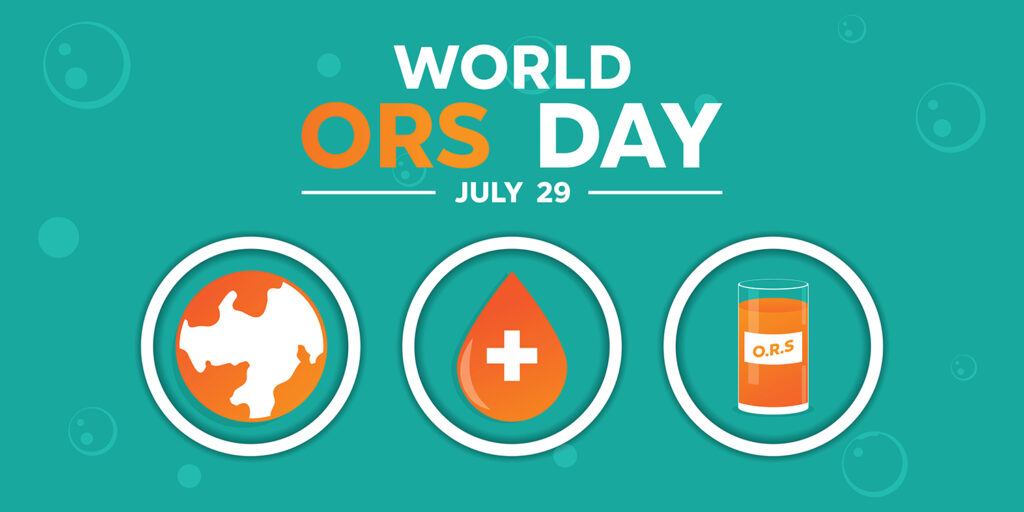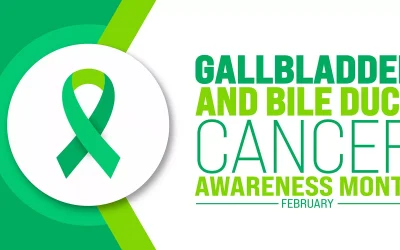World ORS Day 2025: Understanding the Importance of Oral Rehydration Therapy

Dehydration is one of the most common yet overlooked health concerns, especially during summer months or when illnesses such as diarrhoea and vomiting strike. If not managed promptly, dehydration can lead to serious complications, particularly in children, the elderly, and individuals with chronic conditions. Among the simplest and most effective treatments for dehydration is Oral Rehydration Solution (ORS), a lifesaving mix of water, salts, and sugar that helps restore lost fluids and electrolytes. World ORS Day serves as a reminder of the importance of timely rehydration and public awareness around diarrhoeal diseases, which remain a major cause of illness in many parts of the world. In this article, we discuss what ORS is, its uses, signs of dehydration, and how we at Graphic Era Hospital support timely and effective care.
Table of Contents
ToggleWorld ORS Day 2025: Date, Purpose, and Significance
World ORS Day is observed every year on July 29 to raise awareness about the importance of Oral Rehydration Solution (ORS) in preventing and treating dehydration, especially during diarrhoeal illnesses. The observance was initiated to address the alarming rates of dehydration-related deaths, particularly among children under five, in many low- and middle-income countries.
The day promotes the widespread use of ORS as a simple, cost-effective, and accessible intervention that can save lives when used correctly. Public health experts, paediatricians, and hospitals use this opportunity to educate families about the dangers of fluid loss and how rehydration therapy using ORS can reduce complications and hospital admissions.
World ORS Day 2025 continues to encourage both preventive and early-response measures, emphasising the need for quick action during episodes of diarrhoea, vomiting, or heat-induced dehydration.
What is ORS and How Does It Work?
Oral Rehydration Solution (ORS) is a medically formulated mixture of clean water, salt, and sugar designed to replace fluids and essential electrolytes lost due to dehydration. It is widely recommended by the World Health Organization (WHO) as a first-line treatment for diarrhoea and vomiting.
Here’s how ORS works:
- Replenishes lost fluids: ORS helps restore the body’s water balance, which is critical during or after episodes of loose motion or vomiting.
- Restores electrolytes: Sodium and potassium in ORS help regulate nerve and muscle function, maintaining proper hydration levels in the body.
- Enhances water absorption: The sugar (glucose) in ORS assists in better absorption of salts and water from the intestines.
- Prevents complications: Timely use of ORS can prevent serious outcomes such as dizziness, low blood pressure, organ damage, or hospitalisation.
ORS is especially effective when used at the first sign of diarrhoea or heat-related dehydration. Its ease of use, low cost, and proven results make it one of the most impactful public health tools in global medicine.
ORS Uses and Key Benefits
Oral Rehydration Solution (ORS) is not just for treating diarrhoea—it plays a critical role in managing a variety of dehydration-related conditions. Whether caused by illness, heat, or physical exertion, ORS helps stabilise the body quickly and safely.
Common uses of ORS include:
- ORS for diarrhoea and loose motion: Widely used to treat fluid loss caused by bacterial or viral diarrhoea in both children and adults.
- ORS during vomiting or stomach infections: Helps replace electrolytes lost through vomiting or stomach flu.
- ORS for heat-related dehydration: Especially useful in hot climates or after intense physical activity, when the body loses water through sweat.
- ORS for children and infants: Safely administered in smaller doses to manage early signs of dehydration, particularly in babies with diarrhoea.
- ORS for stomach pain with diarrhoea: While ORS doesn’t treat pain directly, it prevents complications from fluid loss during gastrointestinal upset.
Key benefits of drinking ORS:
- Quickly restores hydration: Faster and more effective than plain water for treating dehydration.
- Reduces risk of hospitalisation: Prevents the progression of mild symptoms into severe dehydration, especially in children.
- Easy to prepare and administer: Available in pre-packed sachets or can be made at home with clean ingredients.
- Safe and affordable: Recognised as a first-line, low-cost solution by healthcare systems globally.
Signs of Dehydration Everyone Should Know
Recognising the early signs of dehydration is essential for timely intervention. Whether caused by diarrhoea, vomiting, heat, or inadequate fluid intake, dehydration can escalate quickly, especially in children, older adults, and those with existing health issues. Common signs of mild to moderate dehydration include:
- Dry mouth and thirst: One of the earliest signs, often accompanied by cracked lips or reduced saliva.
- Dark yellow urine or reduced urination: Indicates the body is conserving water due to fluid loss.
- Fatigue and weakness: A dehydrated body struggles to carry out normal physical and mental tasks.
- Dizziness or light-headedness: Caused by reduced blood volume and low blood pressure.
- Headache and irritability: Often overlooked, especially in children, but a common symptom of fluid loss.
Serious signs of dehydration that need immediate medical attention:
- Sunken eyes or dry, wrinkled skin: More common in children and older adults.
- Rapid heartbeat and breathing: The body is working harder to circulate blood.
- Confusion or fainting: Can indicate severe dehydration and electrolyte imbalance.
- No urination for over 6–8 hours: A red flag in both children and adults.
Note: If these signs appear, especially in a child or an elderly person, it is crucial to begin rehydration therapy with ORS immediately and seek help from emergency care or a pediatrician in Dehradun if symptoms worsen.
How to Use ORS Correctly
For Oral Rehydration Solution (ORS) to be effective, it must be prepared and administered properly. Incorrect mixing or dosing can reduce its effectiveness and, in some cases, worsen dehydration.
Steps to use ORS correctly:
- Use clean water: Mix the contents of one ORS sachet into 1 litre of boiled and cooled or safe drinking water. Do not use hot, fizzy, or flavoured water.
- Stir until fully dissolved: Make sure the powder completely dissolves—there should be no visible particles.
- Do not add anything else: Avoid adding sugar, salt, milk, or juice to the solution, as this may alter its effectiveness.
- Use immediately and discard after 24 hours: ORS loses its effectiveness if stored for too long or kept in unsanitary conditions.
Dosage guidelines:
- For children: Offer small sips frequently. Roughly 50–100 ml after each episode of loose motion or vomiting.
- For adults: Drink 200–400 ml after each diarrhoeal episode, or as advised by a healthcare provider.
- If vomiting occurs: Wait for 10 minutes and then try giving ORS slowly, one spoonful at a time.
Common mistakes to avoid:
- Mixing with too little or too much water
- Not storing the solution properly
- Using expired ORS sachets
- Giving plain water or sugary drinks as a substitute
Note: For persistent symptoms or uncertainty about dosing, especially in children, it is best to consult a pediatrician or visit a child care hospital for personalised advice.
ORS for Children and Adults: What’s Different?
While ORS is safe and effective for all age groups, the way it is administered can vary based on the patient’s age, weight, and severity of dehydration. Understanding these differences ensures better outcomes and minimises the risk of complications.
ORS for children:
- Frequent small sips: Children should be given small spoonfuls or sips every few minutes, especially after each episode of diarrhoea or vomiting.
- Monitor fluid loss closely: Babies and toddlers are more prone to rapid dehydration. Watch for signs like dry lips, sunken eyes, or reduced urination.
- Dosage recommendation: For mild to moderate dehydration, 50–100 ml of ORS should be given after each loose stool, depending on the child’s weight and age.
- When to seek help: If a child refuses ORS, vomits continuously, or shows signs of severe dehydration, it’s important to consult a pediatrician in Dehradun or visit the emergency care unit at a nearby child care hospital.
ORS for adults:
- Higher fluid needs: Adults can typically tolerate and require larger quantities – 200 to 400 ml after each episode of loose motion or vomiting.
- Pay attention to underlying conditions: Individuals with diabetes, kidney problems, or heart conditions should use ORS under medical guidance.
- ORS for loose motion and stomach pain: In adults, ORS helps restore fluid balance during gastroenteritis, heat exhaustion, or digestive infections.
Using ORS appropriately for each age group helps prevent dehydration-related complications and supports faster recovery during common illnesses such as diarrhoea, vomiting, or summer-related infections.
Homemade ORS Recipe and Safe Preparation Tips
While packaged ORS is widely available and medically recommended, homemade ORS can be a reliable alternative in emergencies or when sachets are not accessible. However, accuracy and hygiene are key to ensuring its effectiveness and safety.
Simple homemade ORS recipe:
- Ingredients:
- 1 litre of clean, boiled and cooled water
- 6 level teaspoons of sugar
- ½ level teaspoon of salt
- Preparation:
- Mix the sugar and salt into the water until fully dissolved.
- Taste the solution. It should be no saltier than tears. If it tastes too salty or too sweet, discard and start again.
Safe preparation tips:
- Always use clean utensils and safe drinking water.
- Do not use mineral or soda water as substitutes.
- Avoid adding lemon, glucose powder, or other flavouring agents.
- Prepare fresh solution daily. Discard any leftover solution after 24 hours.
When to use homemade ORS:
- During sudden diarrhoea or vomiting when ORS sachets are unavailable.
- In rural or emergency settings with limited access to medical supplies.
- As a temporary measure before reaching a child care hospital or clinic.
Note: Homemade ORS should not replace medical consultation, especially in cases of persistent diarrhoea, repeated vomiting, or dehydration in children. When in doubt, always seek help from a pediatrician or visit the nearest healthcare centre.
How Graphic Era Hospital Helps in Preventing Dehydration
At Graphic Era Hospital, preventing dehydration, particularly among children and vulnerable groups, is approached through more than just treatment. The hospital combines early diagnosis, patient education, seasonal awareness, and personalised care to manage and prevent dehydration effectively. Here’s how Graphic Era Hospital contributes to dehydration prevention:
Timely diagnosis and treatment
Access to experienced professionals, including a paediatrician in Dehradun, ensures early recognition of dehydration and appropriate administration of ORS or IV fluids based on the patient’s condition.
Health education and awareness drives
Through ongoing health education initiatives, the hospital engages families and communities, educating them about diarrhoea prevention, safe drinking water, and the correct preparation and usage of ORS.
Summer disease prevention camps
Graphic Era Hospital organises seasonal awareness efforts to guide families on how to stay hydrated during heatwaves and gastrointestinal outbreaks, which are common in Indian summers.
Emergency care support
The hospital’s emergency department is equipped to respond to severe dehydration cases, offering prompt care to both children and adults.
Specialised child care services
As a leading child care hospital in Dehradun, the facility ensures that infants and young children receive appropriate fluids, nutrition, and support during recovery from diarrhoea or related conditions.
By combining expert medical care, preventive outreach, and a patient-first approach, Graphic Era Hospital remains committed to reducing dehydration-related complications and supporting community health, especially during high-risk seasons.
Staying Hydrated, Staying Healthy
Dehydration remains a serious yet preventable concern, particularly during episodes of diarrhoea, vomiting, and seasonal illnesses. World ORS Day reminds us that even simple interventions, such as Oral Rehydration Solution, can be life-saving when used correctly and in time.
At Graphic Era Hospital, the focus goes beyond treatment. The hospital actively promotes safe hydration practices through paediatric care, emergency services, and community education. From recognising early signs of fluid loss to guiding families on proper ORS use, the hospital ensures timely support and expert care at every step.
Frequently Asked Questions
What is the importance of ORS in treating dehydration?
ORS helps replace lost fluids and electrolytes quickly and effectively, making it the first line of treatment for mild to moderate dehydration, especially in cases of diarrhoea and vomiting.
What are the benefits of drinking ORS during loose motion or stomach infection?
Drinking ORS during loose motion prevents dehydration, supports faster recovery, and reduces the risk of hospitalisation by maintaining the body’s fluid balance.
Can ORS be used for stomach pain and vomiting in adults?
While ORS does not treat the cause of pain, it helps manage fluid loss due to vomiting or diarrhoea. Adults should sip ORS slowly and consult a doctor if symptoms persist.
How is ORS Day celebrated in hospitals and communities?
ORS Day is often marked by health awareness activities, community workshops, free distribution of ORS packets, and education on homemade ORS preparation and usage.
By Specialities
- Bariatric Surgery
- Cancer Care
- Cardiology
- Dental
- Dermatology
- Diabetes & Endocrinology
- Endocrinology and Diabetes
- ENT (Ear Nose Throat)
- Eye Care
- Gastroenterology
- Haematology
- Health Awareness
- Health Care
- Health Tips
- Hematology
- Hepatology
- Internal Medicine
- Mental Health and Behavioural Sciences
- Metabolic
- Neonatology
- Nephrology
- Neurology
- Nutrition & Dietetics
- Obstetrics & Gynaecology
- Oncology
- Ophthalmology
- Orthopaedics
- Paediatric
- Physiotherapy & Rehabilitation
- Plastic and Reconstructive Surgery
- Psychology
- Pulmonology
- Rheumatology
- Spine
- Urology
Recent Posts
Need expert medical advice?
Share your details and our healthcare specialists will reach out to assist you.
By proceeding, you acknowledge and agree to our Privacy Policy, Terms of Use, and Disclaimer.



















